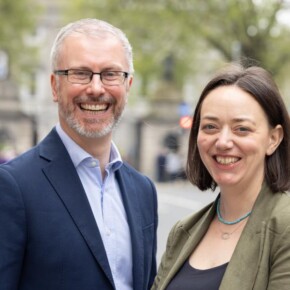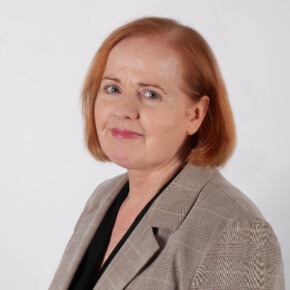“Not enough” classes for students with dyslexia, says Currie
Mike Finnerty 02 Apr 2025
Local Fine Gael TD Emer Currie has said that more needs to be done for students with dyslexia.
The Dublin West TD was speaking in the Dáil on Thursday about the lack of resources in the Irish education system.
As part of a wider Dáil debate about special educational needs, Currie noted that of the 3,336 special classes open nationwide, they are mainly geared towards children with autism.
In this instance, the Fine Gael TD said that children with severe dyslexia need more support.
“What I do not understand is why the Department of Education no longer supports the opening of new reading schools or classes.”
“I believe no such classes have been opened since 2017. In fact, there are only 14 reading classes and four special schools nationally for children with severe dyslexia.”
Currie said the figure is “simply not enough.”
“In an ideal world, the right educational supports could be made available to children in a mainstream setting.”
She said supports are “severely stretched” across Ireland, and that more classes were needed.
“Families, Dyslexia Ireland and National Educational Psychological Service, NEPS, psychologists want reading classes and reading schools to be opened.”
“In my experience, there are families who feel, even with the right educational supports, that intensive intervention in a specialised class focusing on literacy and reading skills for up to two years is an all-round more inclusive approach and experience than children coming in and out of classrooms with a special education teacher.”
“They do not see a reading class or a reading school as a failure of inclusion; they see it as an enabler of inclusion in the long term. We ask the Minister to look again at this policy and at opening reading classes for children with severe dyslexia.”
Currie, who was elected to the Dáil in November’s general election, said, “we need to see progress” on the issue and that “we need to see dyslexia being put firmly on the agenda for special education, delivering for these families and children who really need it.”
Minister of State John Cummins agreed with Currie’s calls to improve educational standards for students with dyslexia, saying “I want to stress that enabling students with additional educational needs to receive an appropriate education is an absolute priority for this government.”
The Fine Gael TD said, “I taught in the education system and taught students with additional needs, so I understand the issue.”
“It is the government’s priority to ensure that all children have an appropriate school placement and that the necessary supports are provided to our schools to allow children with special educational needs to flourish and prosper.”
“It is important to highlight that the majority of children with additional educational needs are supported to attend mainstream classes with their peers.
He noted that around 15,000 special education teachers are employed in mainstream schools across Ireland and that in terms of resource allocation, resources are given to students with the “greatest level of need,” which includes dyslexia.
In terms of what the government can do in the short term to stem the crisis, Cummins said that additional reading classes could be provided by schools.
He noted that the Department of Education will spend €2.9 billion on special education in 2025, which is one-quarter of the entire Department of Education budget.
“More than 28,000 children are being supported in special schools and classes, and the number of special classes has increased by 100% since 2020 through investment by the previous Government, which will continue under this government.”
However, as this publication has noted in our ongoing series about the crisis in special needs education in Ireland, funding for special needs education has gone up, but the level of teachers with adequate skills to teach students with dyslexia has not.
A 2021 survey carried out by the Dyslexia Association of Ireland asked over 400 primary and secondary level teachers across Ireland about what dyslexia-specific training they received before entering the workforce.
In the survey, only 18% of teachers said they had received specific training on identifying dyslexia, and 19% had received training on how to support students with dyslexia.
3% of teachers polled felt that the level of pre-service training they received on dyslexia adequately prepared them for the classroom.
When asked about how Department of Education funding can be best spent in this context, 72% of those polled said that funding should be spent on teacher upskilling on evidence-based interventions, while 62% said that funding for more SET hours would help put a dent in the issue.
56% of teachers polled said they could identify three or more students in their classrooms with dyslexia, and 34% said that five or more students in their class may have undiagnosed dyslexia.
Dublin 15 falls within Currie’s constituency of Dublin West, and that area has become one of the most prominent locations in the ongoing special education crisis.
During a 2021 debate in the Seanad, Currie bemoaned what she called the “postcode lottery” in the Irish education system, where children in the likes of Dublin 15 are not afforded the same opportunities as children in other areas.
“Children in areas may be able to access this type of education, facility and service, and yet children in Dublin West will not.











